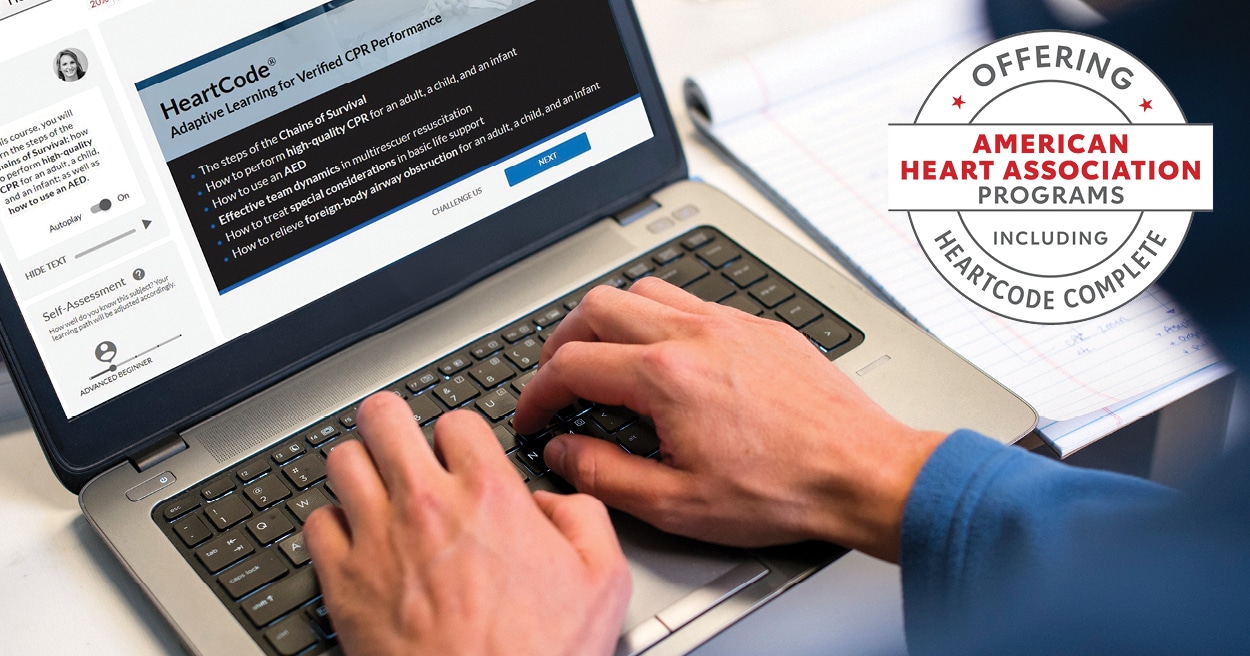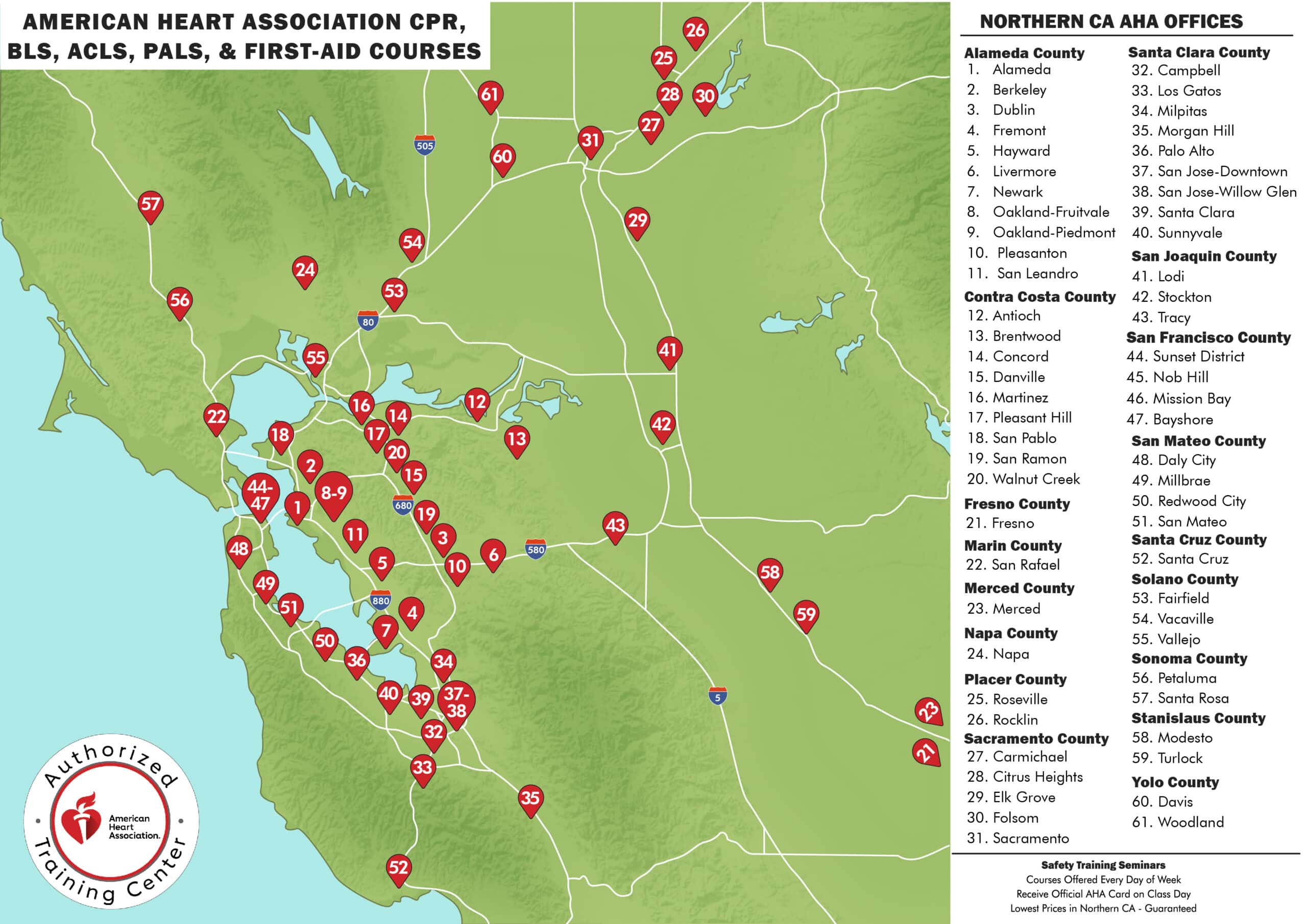American Heart Association© PALS Certification Classes in San Rafael

American Heart Association© PALS
Course Name: PALS Pediatric Advanced Life Support (Initial or Renewal)
Online PALS Course Length: 3-4 hours online (At your home.)
Skills Testing: 30-40 minutes (At one of our over 60 testing sites.)
Price: $290 (This includes the online PALS course, skills testing, & PALS card.)
Certification: American Heart Association© PALS certification card.
When: PALS classes are offered Monday – Sunday from 7 am to 6 pm
Card Issuance: You will receive the PALS certification card on day of class.
Add ons available: ACLS, BLS, First-aid, Opioid, or Bloodborne Pathogens
Low Price Guranetee: Lowest Prices in Marin County. Price matching policy.
PALS Courses Near Me in San Rafael, Marin County
Store locator is loading from StoreRocket Store Locator App..

American Heart Association PALS Classes in San Rafael: Enhancing Pediatric Emergency Care
Pediatric emergencies require specialized care and quick decision-making to ensure the best outcomes for young patients. Pediatric Advanced Life Support (PALS) training, offered by the American Heart Association (AHA), equips healthcare providers with the skills and knowledge needed to effectively manage pediatric emergencies. In San Rafael, California, PALS classes are available to healthcare professionals, empowering them to deliver advanced care for pediatric patients in critical situations. This article explores the importance of PALS training, the offerings of the American Heart Association in San Rafael, and the impact of these classes on pediatric emergency care in the community.
The Critical Need for PALS Training
Pediatric emergencies, including respiratory distress, shock, and cardiac arrest, require immediate and specialized care. PALS training focuses on the unique aspects of pediatric care, such as age-specific assessments, recognizing and managing pediatric respiratory emergencies, and utilizing appropriate medication dosages. These skills are crucial for healthcare providers who may encounter pediatric patients in emergency settings.
PALS training emphasizes a systematic approach to pediatric assessment and treatment, ensuring that healthcare providers can quickly identify and address life-threatening conditions. By mastering these skills, healthcare providers can improve outcomes for pediatric patients and provide high-quality care in emergency situations.
The American Heart Association’s Commitment to Pediatric Care
The American Heart Association is a leader in pediatric cardiovascular research, education, and advocacy. In San Rafael, the AHA collaborates with local healthcare providers and educational institutions to offer PALS classes that meet the needs of medical professionals across specialties.
The PALS curriculum is regularly updated to reflect the latest evidence-based guidelines and best practices in pediatric emergency care. Certified PALS instructors lead the classes, providing participants with hands-on training and real-world scenarios to enhance their skills. The AHA also emphasizes the importance of continuous quality improvement, offering resources and support for ongoing skill development and knowledge retention.
Comprehensive Offerings of PALS Classes in San Rafael
The PALS classes offered by the American Heart Association in San Rafael are designed to accommodate healthcare providers at various stages of their careers. The curriculum covers a wide range of topics, including pediatric assessment, respiratory management, and cardiovascular emergencies. Participants engage in interactive simulations and hands-on practice sessions to reinforce key concepts and enhance their clinical decision-making skills.
Beyond the classroom, PALS training fosters a culture of excellence and continuous learning within healthcare organizations. Participants gain valuable insights into interdisciplinary collaboration, communication strategies, and quality improvement initiatives, which can enhance the overall efficiency and effectiveness of patient care delivery.
Impact on Pediatric Emergency Care in the Community
The impact of PALS training extends beyond individual skill development to encompass broader improvements in pediatric emergency care across the community. By equipping healthcare providers with the expertise to deliver timely and evidence-based interventions, PALS classes contribute to better patient outcomes, reduced hospitalizations, and improved survival rates for pediatric emergencies.
Moreover, PALS-trained professionals serve as valuable resources within their organizations, sharing their knowledge and expertise with colleagues and contributing to a culture of clinical excellence and innovation. As more healthcare providers in San Rafael undergo PALS training, the community’s capacity to respond to pediatric emergencies grows stronger, resulting in enhanced resilience and preparedness for future challenges.
Conclusion
In San Rafael, California, American Heart Association PALS classes play a vital role in advancing pediatric emergency care and improving patient outcomes. By providing healthcare providers with the knowledge and skills necessary to manage pediatric emergencies, these classes enhance the quality and effectiveness of care delivery across the community. Through collaboration, education, and commitment to excellence, the AHA and its partners in San Rafael strive to empower healthcare professionals with the tools they need to save lives and promote pediatric health and well-being.
FAQs
Who should attend PALS certification classes in San Rafael?
PALS certification classes are primarily designed for healthcare professionals who are involved in the management of pediatric patients, including pediatricians, emergency physicians, nurses, paramedics, and respiratory therapists.
How long does a PALS certification course typically last?
PALS certification courses usually span over two days, with a combination of didactic instruction, skills practice, and simulated scenarios to ensure comprehensive learning and skill mastery.
Is there a renewal requirement for PALS certification?
Yes, PALS certification is typically valid for two years, after which healthcare professionals are required to undergo PALS renewal courses to maintain their certification.
